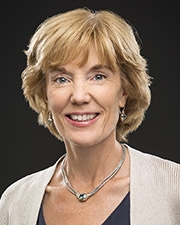Penn GSE experts weigh in on Biden’s tuition-free community college proposal

Laura Perna says plan would create meaningful changes for families. Jalil Mustaffa Bishop says the bill should be bigger.
Jeff Frantz, Penn GSE Communications
frantzj@upenn.edu | 215-898-3269
*Note for TV and radio: The University of Pennsylvania has an on-campus ISDN line and ready access to a satellite uplink facility with live-shot capability.
Perna: Biden’s free community college plan is a bold step toward undoing historical inequities in higher education
“President Biden’s free community college plan represents the first and best—but not last—step we can take to making a college degree truly accessible for most Americans, especially the low-income students and students of color who have historically been left off campus.
"Free community college programs at the state and local level have been proven to work – I’ve been studying them since 2015. If we are serious about developing the country’s workforce, rebuilding the middle class, and improving equity in higher education, now is the time to implement free community college on a national level.
"Community college students are working incredibly hard to get a college degree, often juggling school, job, and family obligations. Biden’s plan alone wouldn’t make it easy for them. But it would ease the burden and help make earning a degree in a reasonable period of time realistic for millions of students. That would be transformative.
"This plan isn’t a cure-all. We will need to ensure these initiatives reduce costs for low-income students. And we will need a federal-state partnership that rewards states for their investments in higher education, compensates for differences in state wealth and other resources, and recognizes that state higher education systems and policies vary.”
— Laura Perna, Vice Provost for Faculty, University of Pennsylvania & Professor, Penn Graduate School of Education
Credentials:
- Laura Perna is a nationally recognized expert in college access, affordability, and success, especially for low-income, first-generation, and non-traditional students.
- She created the most comprehensive database on College Promise programs (which includes “free college programs”), and is the co-editor of Improving Research-Based Knowledge of College Promise Programs.
- She is the co-author of the annual Pell Institute Indicators of Higher Education Equity in the United States.
- Perna is the Vice Provost for Faculty at the University of Pennsylvania and a professor in the Graduate School of Education.
Bishop: Free tuition-only community college does not go far enough for families
“This is the time to go big. The American Families Plan helps to push the free college movement forward but it does not meet the moment where the costs of college are skyrocketing along with student loan debt.
“We need higher education legislation that is comprehensive: make public higher education free beyond tuition, cancel student debt, fund free college for HBCUs and minority-serving institutions, and provide capital for under-resourced institutions.
“Real change will require changing the framework of publicly-funded education from the current K-12 model to pre-K-16. That means free college education options for all families. That means not having a $125,000 income cap that would exclude many families, particularly in communities of color, who do not have the wealth, despite their income level, to afford college costs.
“Lastly, there are real equity concerns with the focus on tuition-only funding in these college proposals. Tuition does not make up the majority of college costs which include room and board, books, and other living expenses. The current proposal might not do anything for the poorest college students, if their tuition is already covered by existing grants. It is critical that free college policies are designed to make college free not in name, but in reality."
— Jalil Mustaffa Bishop, Penn GSE Lecturer & Penn Vice-Provost Postdoctoral Scholar
Credentials:
- Jalil Mustaffa Bishop is an expert on the student debt crisis, higher education policy, and its impacts on equity.
- He is currently leading the National Study on Black Student Loan Debt, the most extensive study of the Black student loan debt crisis. He co-authored the NAACP report, Legislation, Policy, and the Black Student Debt Crisis.
- His research has been featured in outlets including The Washington Post, NPR, Afropunk, Diverse Education, Racebaitr, NewsOne, and The Root.

